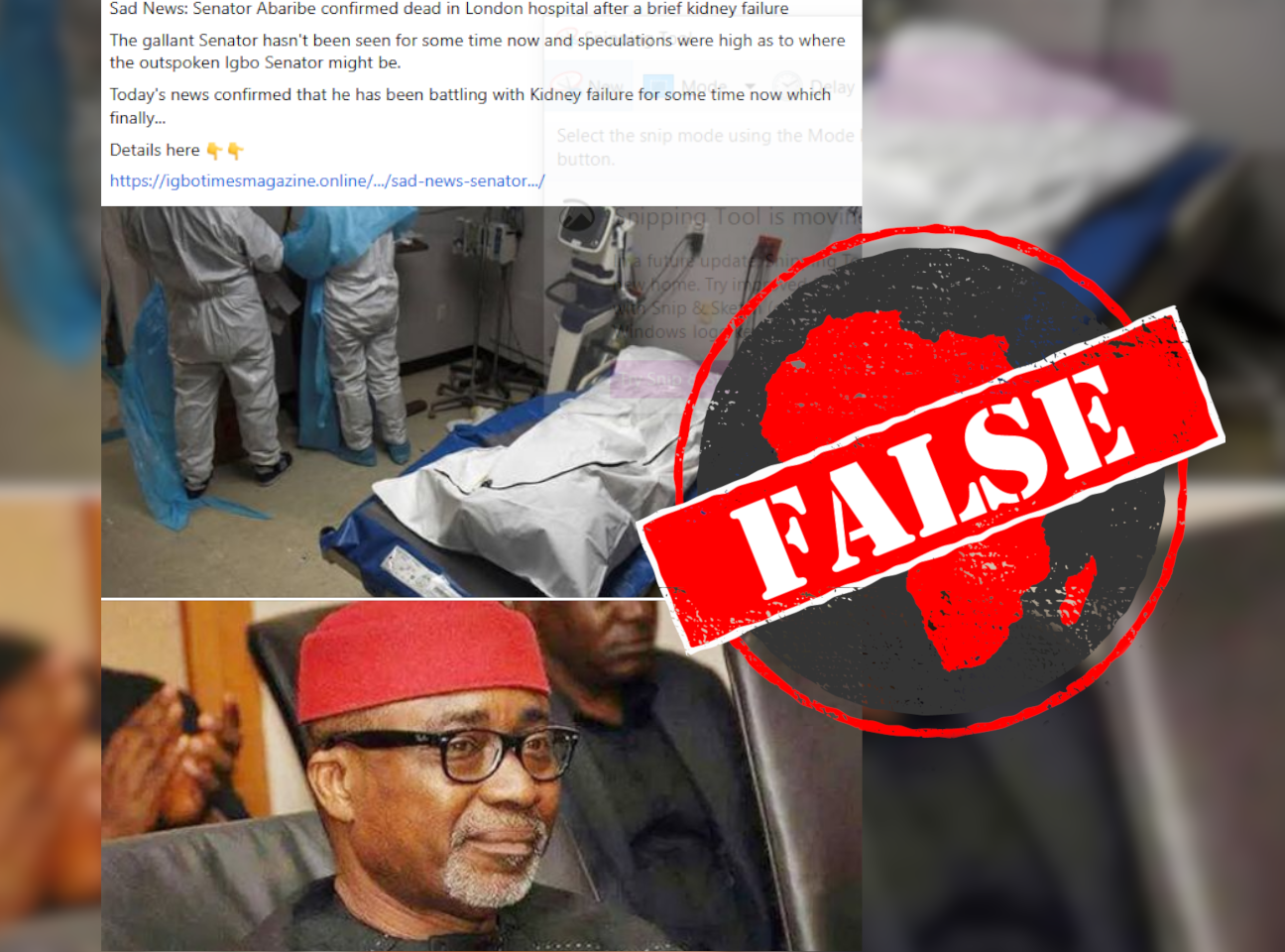IN SHORT: Enyinnaya Abaribe is running for his fifth term in Nigeria’s senate in the February 2023 parliamentary elections. And contrary to social media rumours, he’s busy campaigning in his district – not lying dead in a London hospital.
A message circulating on Facebook since 24 January 2023 claims that Enyinnaya Abaribe, the former minority leader in the Nigerian senate, has died from kidney failure in a UK hospital.
It reads: “Sad News: Senator Abaribe confirmed dead in London hospital after a brief kidney failure.
“The gallant Senator hasn’t been seen for some time now, and speculations were high as to where the outspoken Igbo Senator might be.
“Today's news confirmed that he has been battling kidney failure for some time now, which finally…”
It then links to a post on a dodgy blog that simply repeats the message. (When the link is clicked, a warning pops up that it violates Facebook’s community standards.)
Abaribe, a senator representing Abia South in southeast Nigeria, is a vocal critic of current president Muhammadu Buhari’s government.
In January 2020, Abaribe was in the news for asking Buhari to resign for failing to solve Nigeria’s security problems. He left the Peoples Democratic Party in May 2022 for the All Progressives Grand Alliance. Abaribe is running for a fifth term in the senate in the 25 February 2023 parliamentary elections.
But has he died?

Senator ‘laughs out loud’
On the day the death rumour appeared online, it was debunked by Uchenna Awom, one of the senator’s aides.
Awom told Vanguard newspaper that Abaribe was busy campaigning in his senatorial district ahead of the elections. The newspaper also reported that it had spoken to Abaribe on the phone on 24 January.
Vanguard’s report is headlined: “Death rumour: Abaribe laughs loud on phone call.”
There have been no reports by any reputable media organisations that Abaribe, a prominent politician, has died in a London hospital.
Republish our content for free
For publishers: what to do if your post is rated false
A fact-checker has rated your Facebook or Instagram post as “false”, “altered”, “partly false” or “missing context”. This could have serious consequences. What do you do?
Click on our guide for the steps you should follow.
Publishers guideAfrica Check teams up with Facebook
Africa Check is a partner in Meta's third-party fact-checking programme to help stop the spread of false information on social media.
The content we rate as “false” will be downgraded on Facebook and Instagram. This means fewer people will see it.
You can also help identify false information on Facebook. This guide explains how.


Add new comment